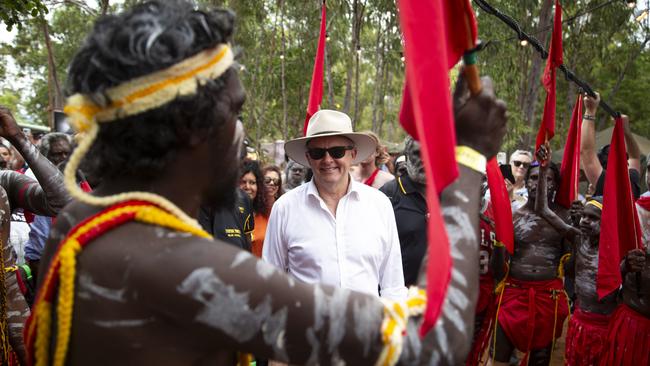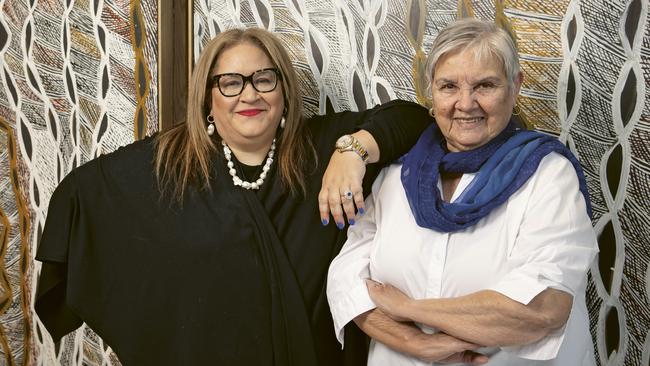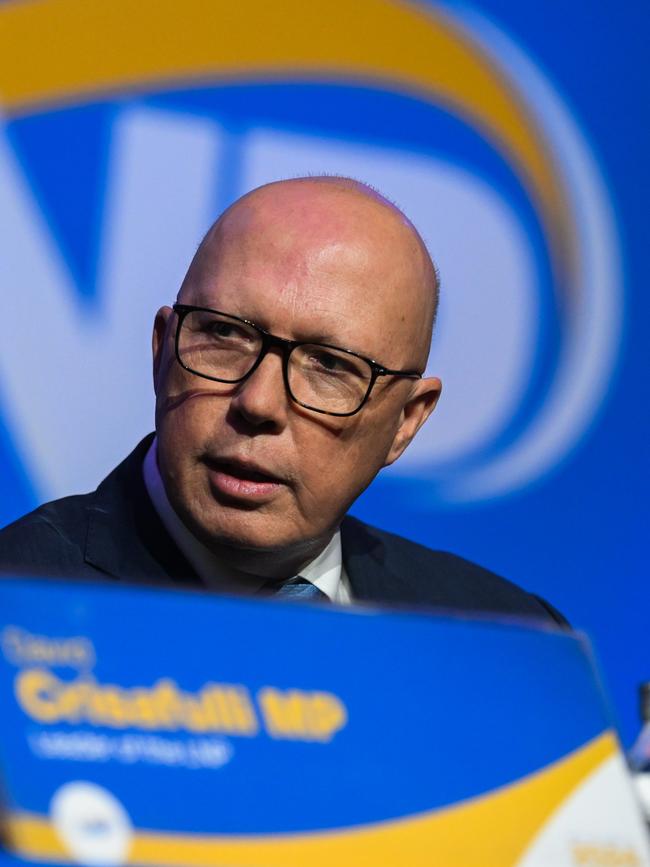Wind farms for reconciliation? PM’s Garma pitch can’t be serious

The festival should’ve been a reaffirmation of the PM’s commitment to the Uluru Statement from the Heart. Many of us wanted his vision for the way forward on truth and treaty, as well as his delivery of local voices, following the emphatic defeat of the voice referendum.
Uluru Dialogue co-chair Pat Anderson raised her concerns with the obvious change in direction. And Yes campaign leader Dean Parkin said the PM’s commitment to Makarrata was unequivocal and made “in good faith”.
Likewise, Megan Davis argued strongly that voices should still be given to those local First Nations communities that voted overwhelmingly for the Albanese voice to parliament.
Sure, the vast majority of Australians rejected the Albanese voice, but why not announce his delivery of a separate, empowered approach for local First Nations communities? Instead, he back-pedalled on Makarrata, was silent on local voices and announced a renewable energy plan to close the gap. This was a complete capitulation and a total abandonment of reconciliation.
So now we hear solar panels and wind turbines on traditional lands might offer the best route to reconciliation.

However virtuous this kind of talk is, it won’t close the gap. Surely, many people will be concerned the wind and solar farms will forever scar the visual and spiritual landscape of this country that “always was and always will be” Indigenous land?
Let’s be serious. Renewable energy can’t possibly fill the void left by the emphatic rejection of the Albanese voice just 10 months ago. Indigenous leaders have said they are mourning the loss of the voice and waiting for a way forward. Garma was the time for Albanese to lead on Indigenous issues. Instead: nothing.
Who of us can forget Albanese’s election night victory speech? Having just beaten the deeply unpopular Scott Morrison on “cost of living” and “cheaper electricity”, he articulated his chief mission of delivering the Uluru Statement from the Heart “in full”.
In the months ahead, the PM attended gigs with Midnight Oil wearing the black T-shirt with the white words, “Voice, Truth, Treaty”, emblazoned as a badge of honour. None of us could have been prouder to see our Labor PM so unequivocally committed to the cause.
Albanese went to the Garma Festival last year with the voice campaign in full swing. He’d launched the campaign in the previous year and established a process to craft the words for the referendum question. Garma will forever be intertwined with the Albanese voice.
As Albanese said, “it’s a modest request”. But the voice was anything but. Remember, the Albanese voice was going to be his grand story; a grateful nation endorsing a strong leader’s vision.
Well, the history will now turn out differently: it will show that published polls in the lead-up to the voice were 60:40 in favour of Yes in March 2023 and, six months later, Australians voted against the voice, 60:40.
It was a devastating loss for progressive politics in Australia. Albanese hasn’t spoken much of the result since. He’s talked stage three tax cuts and energy bill rebates, he’s spruiked the AUKUS subs deal and enacted a ministerial reshuffle.
The voice was supposed to consign Peter Dutton and the Liberals to electoral doom among forward-thinking Australians, but that hasn’t happened either, with Liberals leading Labor on primary votes and in some polls now on a two-party-preferred basis.
Albanese’s own polling numbers have been in free fall since the Albanese voice was rejected.
That’s why so many of us on the progressive side of politics are dumbfounded that at the last Garma Festival before the next election the PM would even talk down the possibility of Makarrata commission – a national truth-telling opportunity.

State Labor governments are already well advanced with state voices, such as in Victoria and South Australia. Victoria has completed the truth-telling commission and is finalising a state-based treaty with First Nations peoples. Queensland Labor has announced up to 100 individual treaties across that state. Voice, truth and treaty are ALP national policy.
Albanese needs to shed the caution and timidness. Sure, he lost the vote badly on the Albanese voice, but that setback should see him step back in the ring and fight for First Nations people and their rights.
Garma was the perfect opportunity for that reset, yet the PM shirked that opportunity.
Let’s just hope that, seeing as he made this the central reason for his government on election night, Albanese announces his full plan for the Uluru Statement to voters before the coming election so progressive voters can make a clear choice.



For those of us hoping Anthony Albanese’s return to Garma would reset the path to reconciliation last week, we were left bitterly disappointed.